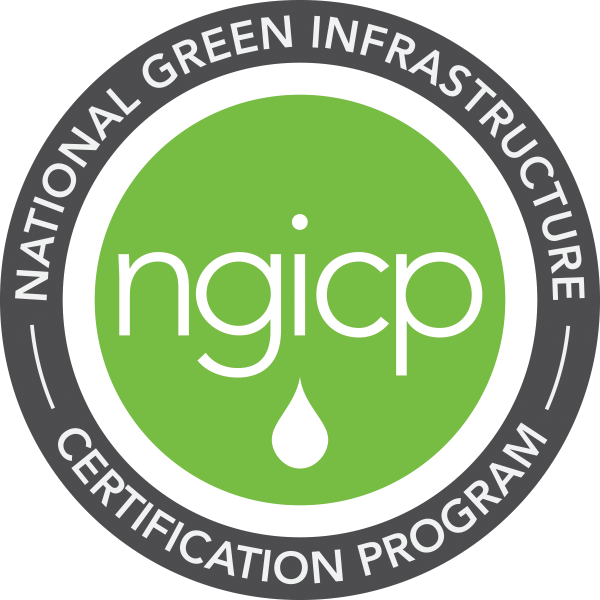
Terry Leeds
Director, KC Water
By Terry Leeds Director, KC Water (originally appeared in the World Water: Stormwater Management Winter 2019 issue)
As precipitation increases and collection and treatment systems age, local, regional, and national governments realize the critical need to manage stormwater not only to protect water quality, but also to save lives and property.
Of course, we cannot control the weather. Rainwater or snowmelt will go where it will go. The challenge is to live with it in a way that minimizes threats and maximizes benefits.
That is the principle behind green infrastructure, defined by the United States (US) Environment Protection Agency (EPA) as the use of “vegetation, soils, and other elements and practices to restore some of the natural processes required to manage water and create healthier urban environments.”
Green infrastructure only works when it is correctly built, regularly inspected, and skillfully maintained. Complicating the process are twin realities: Different communities may have different
needs and resources. Meanwhile, stormwater does not recognize political or cultural boundaries.
As a part of addressing these and other challenges, the Water Environment Federation’s Stormwater Institute – in partnership with District of Columbia (DC) Water, Kansas City (KC) Water,
and a dozen other US utilities and jurisdictions – established the National Green Infrastructure Certification Program (NGICP).
 The program is simple at its core. NGICP trains the skilled individuals necessary to install, inspect, and maintain green infrastructure systems. Underlying this simplicity is an extensive certification program designed to set the bar for keeping our nation’s waters clean.
The program is simple at its core. NGICP trains the skilled individuals necessary to install, inspect, and maintain green infrastructure systems. Underlying this simplicity is an extensive certification program designed to set the bar for keeping our nation’s waters clean.
Three permanent bodies govern NGICP:
KC Water administered training in a classroom setting three times since 2017 on topics that included materials, vegetation, safety, site management, bioretention, permeable pavement, rainwater harvesting, green-blue roofs, dry wells, stormwater wetlands, and long-term planning.
Participants included associates of KC Water and other Kansas City, Missouri departments (Aviation and Parks & Recreation) along with individuals from local and area contractors and consulting companies.
Certification requires completion of 35 hours of training and a four-hour, proctored examination, resulting in 34 NGICP-certified professionals in the metropolitan area. Certified individuals are required to achieve recertification through documented professional development hours to stay up to date. Nationally, more than 500 individuals are NGICP-certified.
In May 2019, the stage was set for international expansion with establishment of a trainer corps and pilot programs in Auckland, New Zealand.
These NGCIP programs and training bring many benefits to each community:
Clean Water Act compliance
In the US, the Clean Water Act charges entities responsible for stormwater to safeguard water resources for future generations.
Green infrastructure is an environmentally and economically beneficial way to do that.
Federal consent decree response
The EPA and several US states in 2000 undertook a national compliance initiative requiring the largest municipal sewer systems with Clean Water Act violations to reduce unlawful discharges of raw sewage that degrade water quality.
Today, these federal consent decrees – which are, in effect, unfunded federal mandates – cover 97 percent of large combined sewer systems, 92 percent of large sanitary sewer systems, and 79
percent of Phase 1 municipal separate stormwater systems.
For the cities and water authorities nationwide subject to these federal consent decrees, green infrastructure can represent an environmentally effective and financially affordable solution to water pollution. NGICP is a standardized and efficient tool help prepare the workforce to implement the green infrastructure projects and take care of them.
National standard
NGICP has the additional benefit of providing a set of national standards for building, maintaining, and inspecting green infrastructure. Particularly in multistate areas like Kansas City, widespread adoption of NGICP reduces or eliminates the chance that conflicting local practices or standards will jeopardize Clean Water Act compliance.
Economic and workforce development
There is no question that responsible utilities are critical to local and regional economic development. No company wants to locate or expand in a community without excellent water, wastewater, and stormwater service. Likewise, workers want sustainable lifetime professional careers. Especially in an era of rapidly evolving technological change, any industry founded on bedrock practice principles will be attractive to the best and brightest workforce.
NGICP enables workers to pursue professions in new, 21st-century jobs that provide both the security of employment transferability – geographically and within the industry – along with the opportunity to pursue career advancement.
Green infrastructure is on the right side of the history of clean water in America.
Every community needs effective stormwater infrastructure to survive and thrive. NGICP is a part of a process infrastructure to help utilities and communities survive, thrive, and achieve a sustainable future.
Author’s Note Since January 2012, Terry Leeds has served as director of KC Water, which is responsible for the water, wastewater, and stormwater utilities of Kansas City, Missouri. He is a member of the NGICP Strategic Advisory Group. For more information, visit www.ngicp.org.